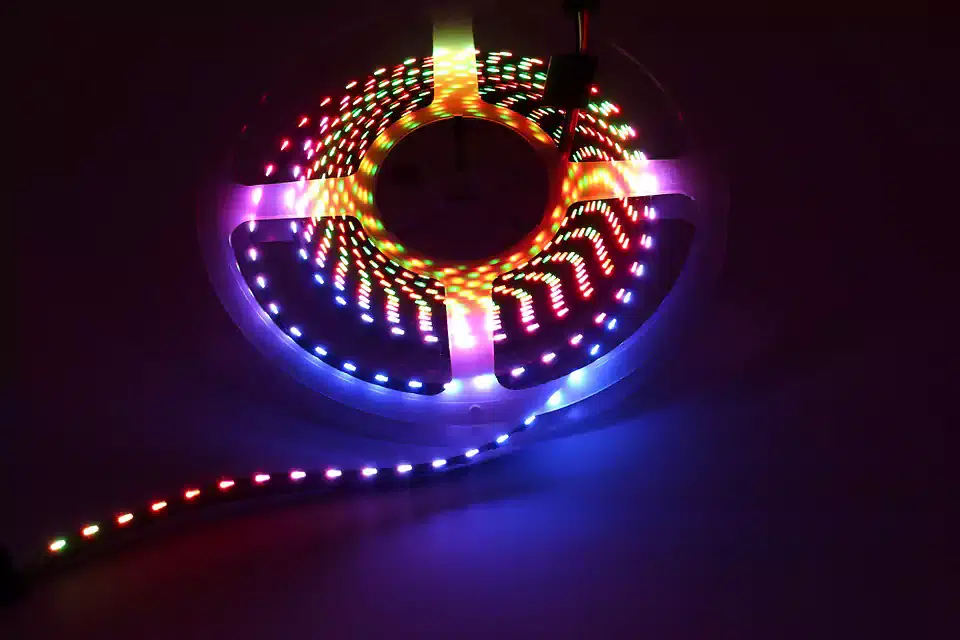BLOG
Are You Supposed to Leave Solar Lights On All the Time?
Solar lights have become a popular choice among garden decorating enthusiasts in the United States and Canada. They offer an eco-friendly and cost-effective way to illuminate outdoor spaces. However, one common question that arises is whether you should leave solar lights on all the time. This article will explore this topic in depth, providing insights into the optimal use of solar lights, their lifespan, and maintenance tips.
Understanding How Solar Lights Work
Before diving into whether you should leave solar lights on all the time, it’s essential to understand how they work. Solar lights are equipped with photovoltaic panels that capture sunlight and convert it into electricity, which is stored in rechargeable batteries. This stored energy powers the LED bulbs at night.
Why Is There an On/Off Switch on Solar Lights?
The on/off switch on solar lights serves several purposes:
- Manual Control: Allows you to manually turn the lights on or off as needed.
- Battery Conservation: Helps conserve battery life when the lights are not needed, such as during storage or transport.
- Initial Charging: Ensures the batteries are fully charged before the first use.
Should You Leave Solar Lights On All the Time?
The decision to leave solar lights on all the time depends on various factors:
1. Charging Solar Lights
For optimal performance, solar lights should be charged fully before their first use. To do this, turn off the lights using the on/off switch and allow them to charge for at least one full sunny day. This helps condition the batteries and ensures they store maximum energy.
2. Energy Conservation
If you are not using your garden or outdoor space regularly, it’s advisable to turn off the solar lights to conserve battery life. This is particularly useful during extended periods of non-use, such as vacations or during winter months.
3. Longevity of the Lights
Constantly leaving solar lights on can lead to quicker battery depletion and reduce the overall lifespan of the lights. Switching them off occasionally can help prolong their life.
How Long Do Solar Lights Last at Night?
The duration solar lights last at night depends on several factors, including:
- Battery Capacity: Higher capacity batteries can store more energy, allowing the lights to stay on longer.
- Sunlight Exposure: Adequate exposure to sunlight during the day ensures the batteries are fully charged.
- LED Efficiency: LED bulbs with higher efficiency use less energy and last longer.
On average, well-maintained solar lights can last between 6 to 8 hours at night. Some high-quality models can last up to 12 hours.
Common Issues and Troubleshooting
1. Why Are My Brand New Solar Lights Not Working?
Brand new solar lights might not work due to:
- Initial Charge: Ensure they are fully charged before the first use.
- On/Off Switch: Verify that the switch is turned on.
- Defective Unit: Occasionally, there might be a manufacturing defect. Contact the retailer if troubleshooting doesn’t help.
2. Why Do My Solar Lights Turn Off at Night?
This issue can occur due to:
- Insufficient Sunlight: Ensure the solar panel receives adequate sunlight during the day.
- Dirty Panels: Clean the solar panels regularly to ensure efficient charging.
- Battery Issues: Replace old or worn-out batteries.
3. How to Charge Solar Lights with an On/Off Switch
To charge solar lights with an on/off switch:
- Turn the switch off to allow the batteries to charge fully during the day.
- Ensure the solar panel is exposed to direct sunlight for optimal charging.
- Turn the switch on at dusk to allow the lights to operate.
FAQs
Should Solar Lights Be Turned Off When Not in Use?
Yes, turning off solar lights when not in use can help conserve battery life and prolong their lifespan.
How Long Should Solar Lights Stay On?
Solar lights should stay on for 6 to 8 hours on average, depending on battery capacity, sunlight exposure, and LED efficiency. High-quality models can last up to 12 hours.
Is It Okay to Leave Solar Lights On All Night?
Yes, it is okay to leave solar lights on all night as long as they have received sufficient sunlight during the day to fully charge the batteries.
Should Solar Lights Be On or Off to Charge?
Solar lights should be turned off to charge, especially for the initial charge. This ensures the batteries can store maximum energy.
Can Solar Lights Overcharge?
No, solar lights cannot overcharge. They are designed with charge controllers that prevent overcharging and ensure optimal battery health.
Do Solar Lights Charge When Off?
Yes, solar lights charge when they are turned off. Turning them off allows the batteries to store maximum energy for nighttime use.
Conclusion
Whether to leave solar lights on all the time depends on various factors, including energy conservation, battery life, and the specific needs of your outdoor space. Understanding how solar lights work and implementing proper maintenance practices can help you get the most out of your solar lighting system. Regularly clean the solar panels, replace the batteries as needed, and turn off the lights when not in use to ensure they remain functional and efficient for years to come.



